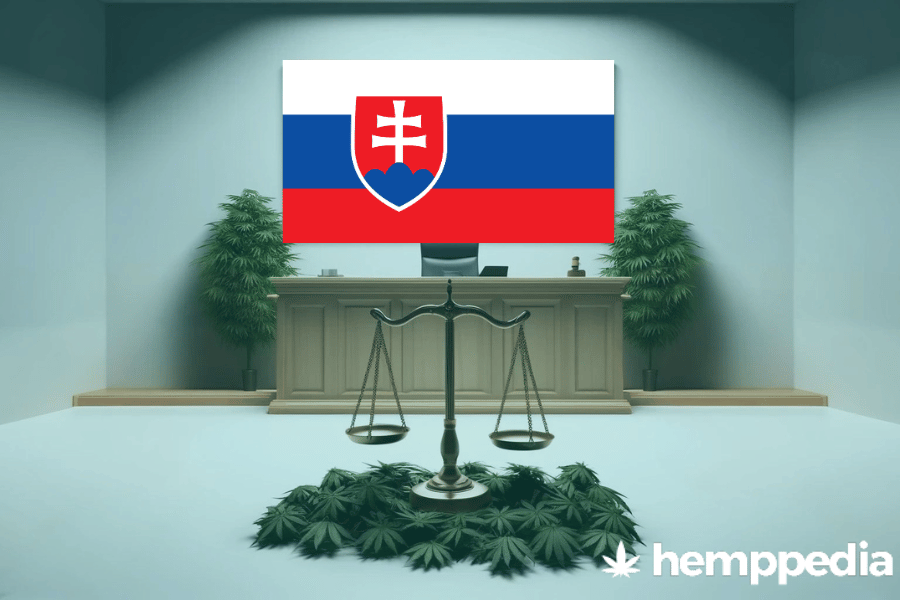TL;DR: Is CBD Legal in Slovakia?
Distinct from its notorious cousin THC, CBD (“Cannabidiol”) is a non-psychoactive compound found in the cannabis plant, known and sought after for its potential therapeutic benefits. However, the legal status of CBD varies significantly worldwide, and it’s a subject of legal ambiguity. In Slovakia, as of the time of writing, CBD is classified as a Group 2 Psychotropic Substance, making its use, possession, cultivation, and trade illegal within the country.
At A Glance
| Classification | Individual Usage | Cultivation | Selling |
|---|---|---|---|
| Group 2 Psychotropic Substance | Illegal | Illegal | Illegal |
While many countries have shifted toward liberalizing cannabis laws, Slovakia has notably gone in the opposite direction. CBD-users in Slovakia need to be aware of these laws and the potential penalties for infringement.
Overview of CBD Legislation
Despite global trends towards decriminalization and regulation of cannabis products, Slovakia stands out as a notable exception. Here, government agencies including the Public Health Authority of the Slovak Republic and the Slovak Police Force regulate CBD.
Conditions and Restrictions
Unlike many EU countries where CBD products are legal provided they contain less than 0.2% THC, in Slovakia, no such distinction exists. CBD, regardless of THC content, is considered a restricted substance. This includes all forms of CBD—oils, topicals and edibles, each of which require special labelling and certification in the areas where they are legal.
Historical Context
CBD’s legal status in Slovakia has oscillated over time. It was added to the list of psychotropic substances in 2011, then removed in 2012, only for it to be placed back in 2017.
Possession, Use, Cultivation and Sales
Regardless of purpose—whether personal use, cultivation or sales—all are considered illegal. Moreover, importing or exporting CBD products in Slovakia is also illegal.
Enforcement and Penalties
Penalties for non-compliance with CBD regulation can result in criminal charges, with potential sentences of up to 8 years for offences involving cultivation and up to 3 years for possession. The laws are applicable indiscriminately, regardless of whether the CBD is intended for medical or non-medical use.
Comparative Analysis
Compared to other countries in the European Union, Slovakia has a stricter regulatory approach to CBD. Most EU countries have decriminalised CBD, provided it is below the 0.2% THC content level. However, Slovakia stands out for its prohibitionist stance.
Conclusion
To summarise, CBD is currently illegal in Slovakia, classified as a Group 2 Psychotropic Substance attracting significant legal penalties for use, possession, cultivation and sale. It distinguishes Slovakia from most other EU countries, which have followed a more liberal path in recent years. The future of CBD legislation in Slovakia remains uncertain, and it’s recommended to stay updated with any changes in law.





